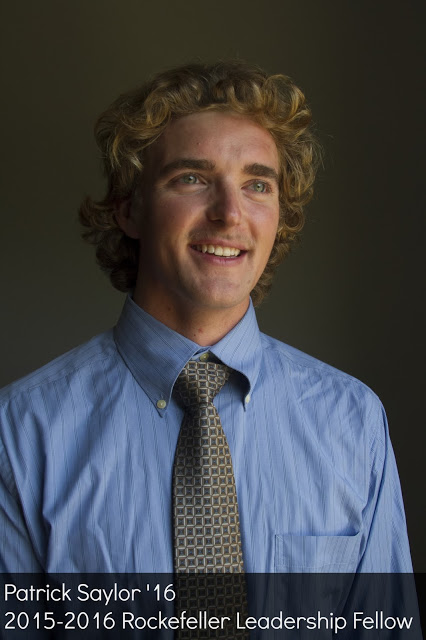- Public Policy
- Leadership
- Funding
- News & Events
- About the Center
Back to Top Nav
Back to Top Nav
Back to Top Nav
Back to Top Nav
This series introduces the 2015-2016 Rockefeller Leadership Fellows. Each fellow reflects on why he or she wanted to be a part of the program and what aspects of leadership most interests them.

There are a few critical elements needed in order for a group undertaking to be successfully accomplished. In order to meet your goals, you must have a group that has the right technical skills, both hard and soft, intimate knowledge of the challenge to be solved, clear communication of common goals, and a diversity of abilities and background within the group. However, even with all of these critical pieces in place, teams may still fail. The missing link that unifies all of these critical characteristics is leadership. While leadership can take on many manifestations, true leadership unifies a team and helps their team focus their efforts to most effectively pursue their shared goal.
In high school, I often sought leadership. I felt that I was talented in this capacity, and continually pursued roles that would allow me to exercise good leadership. This led to many athletic captaincies, student body presidencies, and similar roles. I had always assumed that this style of delegation and organizing my peers was what was meant when people talked about leadership. The first time I read the quote by Nelson Mandela “It is better to lead from behind and put others in front, especially when you celebrate victory when nice things occur. You take the front line when there is danger. Then people will appreciate your leadership.” I was struck that he qualified the need for what I deemed to be ‘leadership’. This idea of removing oneself from the forefront of a group, and still accomplishing a task intrigued me.
One aspect of leadership I have begun to explore is how leadership tactics and leadership styles can be modified given different circumstances. In particular, the skill of finding the most productive leadership approach for particular outcomes. I worked as a UGA during my sophomore year on campus. My job was two-fold; it involved the primary responsibility of creating a safe atmosphere for my thirty residents and building community, and additional team meetings with other UGAs in small groups. I found that in order to be an effective leader working across these two different scales, I needed to change my approach to leadership in each. A direct leadership style was marginally effective with my high number of residents; yet proved quite effective when working in small groups. Engaging everyone on the floor to work towards common community goals, juxtaposed against the direct logistical capacity needed in the UGA meetings highlighted to me the importance of versatility and tailoring styles of leadership to the tasks at hand.
I hope to further explore these ideas, and the different elements of what makes leadership effective and appropriate given different circumstances with my peers in the Rockefeller Leadership Program. Further, I hope to further develop a framework for decision-making in leadership situations when outcomes and consequences involve high levels of uncertainty. I want to learn how to make decisive, consequential decisions in a safe, risk averse manner that is consistent with the goals of my organizations. I hope to one-day work in a field such as disaster management and relief, which necessitates good decision-making. I hope that my varied leadership experiences, and continued reflection on leadership and the role of leaders in a group is something that I can share with my peers, and use to spark further conversation and growth for us as a group.
Patrick Saylor ’16 spent many years of his childhood in Mexico and Luxembourg before receiving high school degrees from both Stowe High School in Vermont and United World College in New Mexico. Patrick entered Dartmouth as a Davis United World College Scholar and will ultimately graduate with a double major in Earth Sciences modified with Biology, and Environmental Engineering in 2017. He conducts ice core chemistry and climate science research under the guidance of Professor Erich Osterberg in the Earth Science department; now having spent two field seasons on Mt. Hunter in Denali National Park, Alaska. Patrick also works in the Rockefeller Center Policy Research Shop where he particularly enjoys projects that focus on environmental law in New England. With a personal interest in human geography, he is also an active member of the Dartmouth Outing Club; serving as treasurer and director of the Mountain bike and winter sports clubs at various times. Outside of Dartmouth, Patrick volunteers with the Upper Valley Wilderness Response Team as a rescue technician and enjoys working with the Lamoille County Habitat for Humanity chapter when he returns to his home in Vermont. Patrick has also been involved with the Dickey Center first as a Great Issues Scholar, and later as a Great Issues Scholar mentor before receiving support to work in plant-based wastewater treatment in the Gambia. Most importantly, Patrick is one of five children and is always looking forward to the next family reunion.